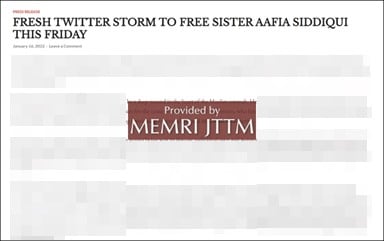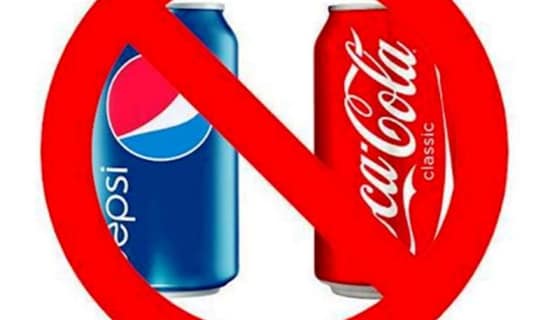On January 15, 2022, British-Pakistani national Malik Faisal Akram took four hostages in the Beth Israel synagogue in Coleyville, Texas, demanding the release of Pakistani neuroscientist Aafia Siddiqui, a Pakistani neuroscientist serving an 86-year sentence for attempted murder of U.S. military personnel and who is known for her affiliation with Al-Qaeda. The incident ended with the four hostages free and Akram having been shot. During the incident and in its aftermath, the MEMRI Jihad And Terrorism Threat Monitor (JTTM) team prepared reports, listed below, monitoring jihadi reactions to the events.
Note to media and government: For a full copy of these reports, send an email with the title of the report in the subject line to media@memri.org. Please include your name, title, and organization in your email.

The January 15, 2022 hostage-taking in the Beth Israel synagogue in Texas, during which the perpetrator, Malik Faisal Akram, demanded the release of Pakistani neuroscientist Aafia Siddiqui, sparked reactions from prominent jihadi clerics.

ISIS supporters praised the man who took hostages at the Beth Israel synagogue in Texas on January 15, 2022.

In response to the hostage-taking, an Al-Qaeda supporter on Telegram wrote: "It is possible that such an act... will open a new door to operations for the sake of the release of Muslim prisoners from the prisons of the tyrants and the oppressors, but in a more organized manner."

On January 16, 2022, following the hostage-taking at the Texas synagogue the day before, British pro-Islamic State (ISIS) preacher Anjem Choudary published a "press release" on his blog calling for a second Twitter storm to demand the release of Dr. Aafia Siddiqui.

On August 7, 2021, a pro-jihad media outlet run from northern Syria by a U.S.-born journalist posted a 36-minute video on YouTube featuring an interview conducted by Abdul Kareem with Mauri Saalakhan, the director of operations for the Maryland-based nonprofit Aafia Foundation.








